As Nelson Mandela once said, ‘Education is the most powerful weapon you can use to change the world.’ Four Physics students from Diponegoro University had the privilege of participating in a visitation and training program at NANOCAT, University of Malaya.
For two weeks, a group of Physics students from Diponegoro University engaged in a laboratory visitation and intensive training program at NANOCAT, a renowned research institution at the University of Malaya, Kuala Lumpur. The primary goal of this program was to enhance the students’ competencies in research and scientific disciplines, particularly in nanotechnology and its various applications. NANOCAT is well-known as a research center that explores the applications of nanotechnology in diverse fields, ranging from environmental issues to energy storage and utilization, as well as in the medical and healthcare sectors. This initiative also aimed to foster and strengthen collaboration between universities in order to develop joint research projects in the future.
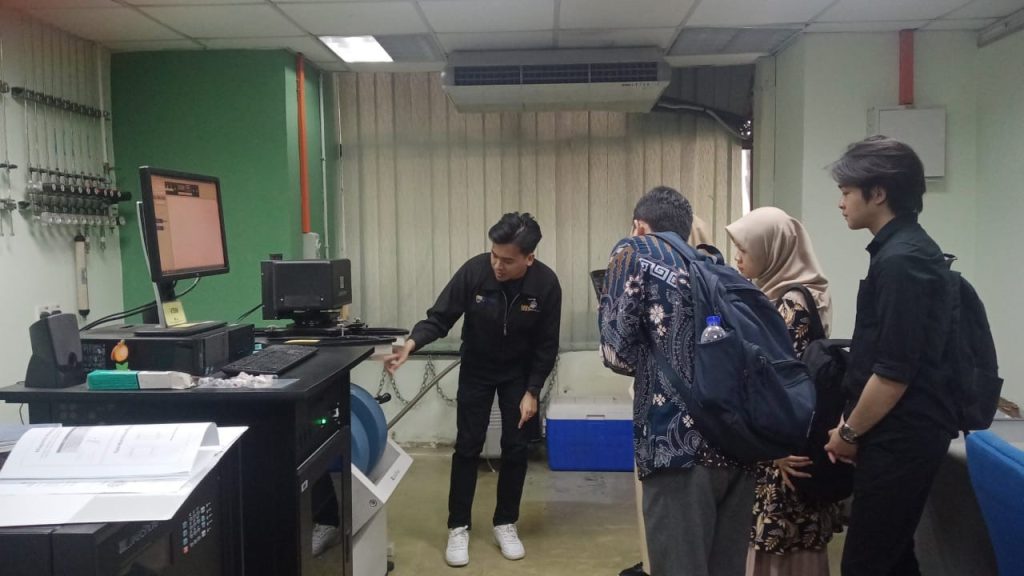
Characterization and Testing of Nanomaterials Training at NANOCAT, University of Malaya
During this training program, Felix Jonathan (Undergraduate Physics), Ulfa Niki Andini (Physics Alumni), Dwi Endah Ni’Matul Amalia (Graduate Physics), and Winarno (Graduate Physics) were guided by Dr. Mohd Rashid bin Yusof Hamid to learn various material characterization techniques such as UV-Vis spectroscopy, FTIR, Raman spectroscopy, VSM, FE-SEM, particle size analyzer (PSA), zeta potential analyzer, and other techniques. The students were also given the opportunity to conduct characterization tests on titanium(IV) oxide nanoparticles, which had been synthesized in the Laser and Advanced Nanotechnology laboratory under the supervision of Dr. Ali Khumaeni, a faculty member from the Physics Department of Diponegoro University. These titanium(IV) oxide nanoparticles are nanomaterials intended to be used as photocatalysts for degrading pollutant compounds in water.
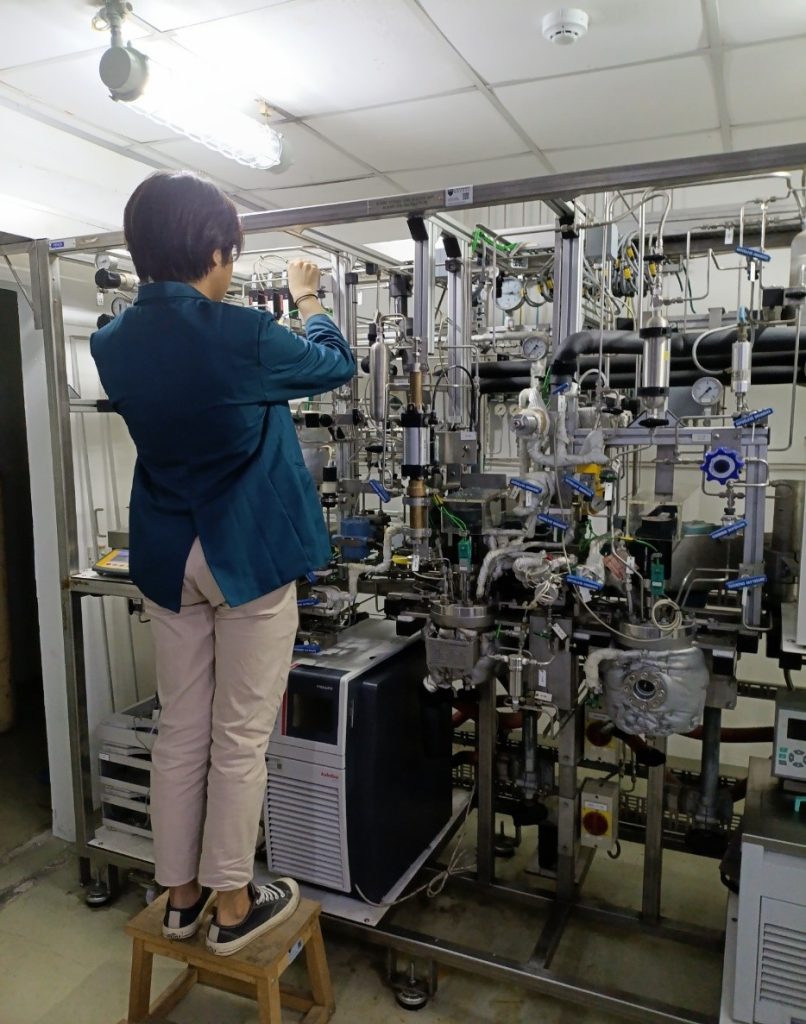
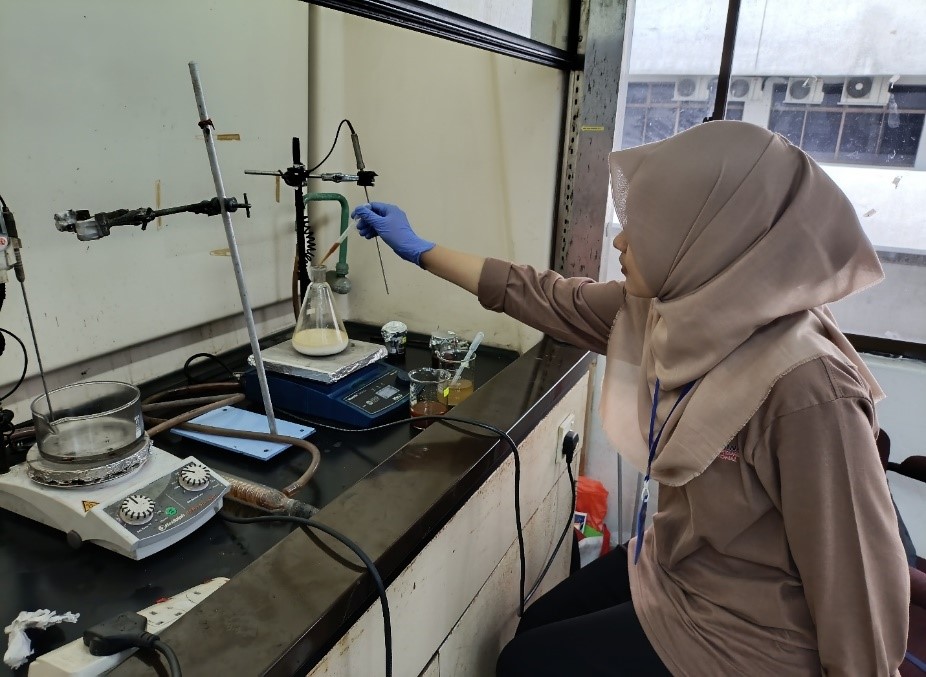
Doctoral Students’ Laboratory Activities Visitation at NANOCAT, University of Malaya
In addition to the aforementioned activities, students were introduced to ongoing laboratory projects at NANOCAT, one of which involves the synthesis of nanocellulose enhanced with iron(II) oxide. The sol-gel method was employed in the fabrication of this material, which is then used as an adsorbent to tackle dye waste commonly left behind from industrial processes. The process of creating this nanomaterial was explained by Dr. Ramprosad Devnath under the supervision of Dr. Zaira Zaman Chowdhury and Assoc. Prof. Dr. Nurhidayatullaili Binti Muhd Julkapli. Students were taught the entire process, from synthesis and characterization to adsorption testing of pollutant compounds in water.
Exploring Knowledge: Classes, Seminars, and Conferences at Genovasi Private University
The training also included classes and seminars covering various topics related to the ongoing research, such as photocatalysis mechanisms, chemical reactions in pollutant degradation processes, and other techniques commonly used for treating pollutant waste in water. These classes provided a theoretical foundation for the students to better understand the application of the techniques they were learning.
While in Malaysia, the students also had the opportunity to attend several conferences at Genovasi Private University, where researchers from around the world presented their findings. Topics discussed at these conferences included advancements in nanotechnology, supercapacitor technology, innovations in agriculture, and other related subjects. Participation in these conferences offered students broader insights into the latest developments in these fields. Additionally, it provided them with the chance to network with international researchers.
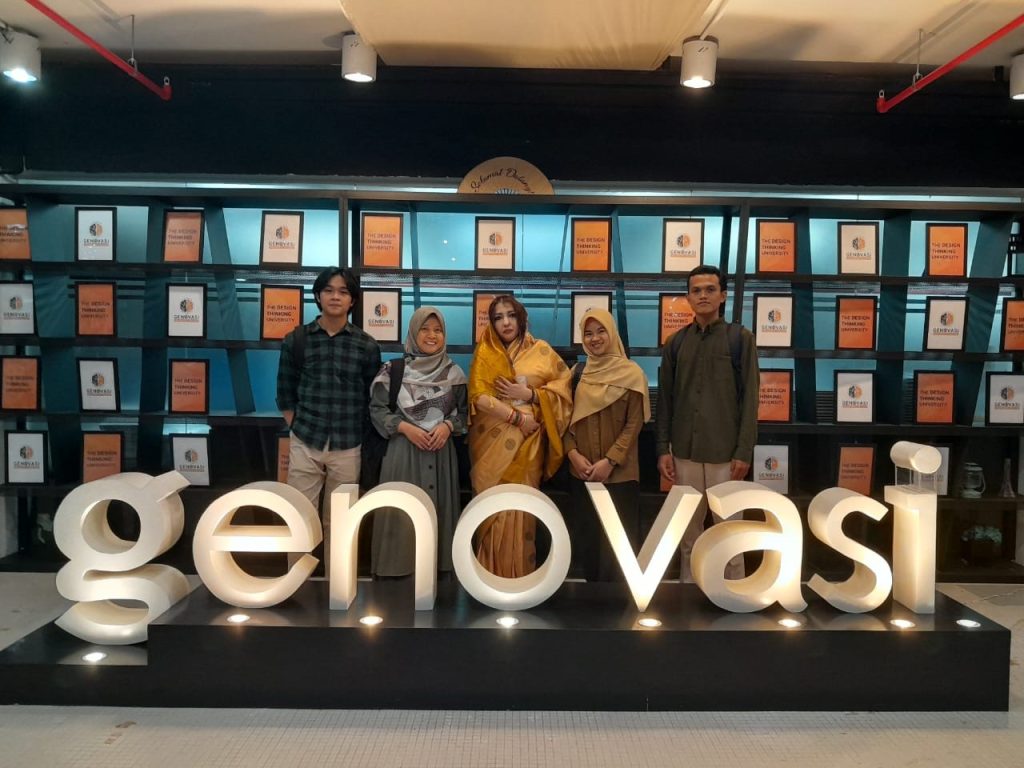
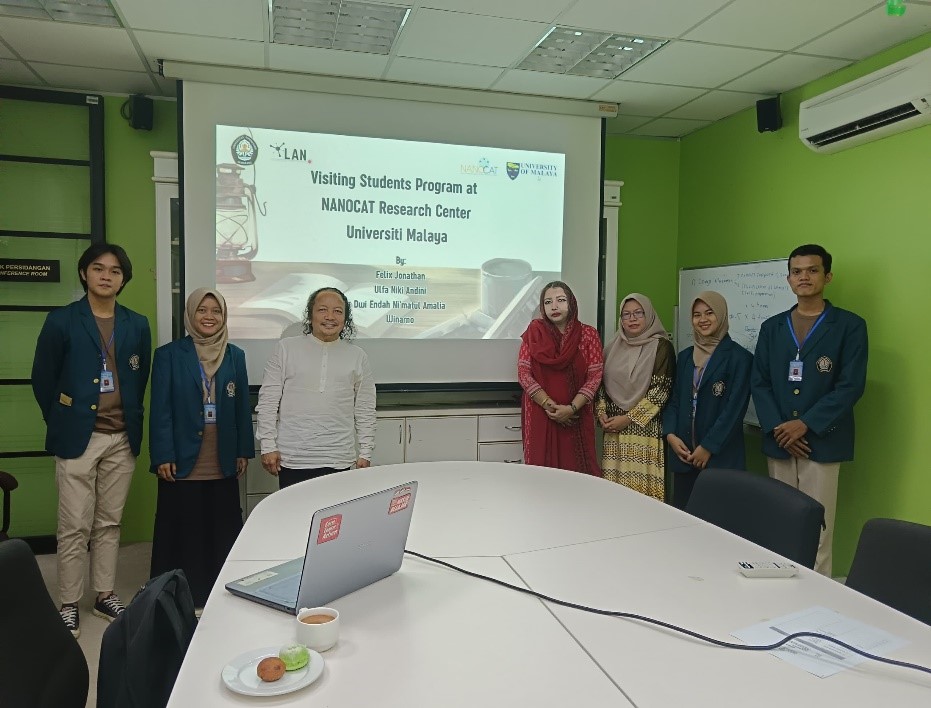
At the end of the program, the students were given the opportunity to present their research findings to the members of NANOCAT and Prof. Dr. Mohd Rafie bin Johan, the director of NANOCAT. The students explained the characterization tests they had conducted, the knowledge they gained from the classes and seminars, and the insights they acquired through various laboratory activities at NANOCAT. This presentation not only showcased the research results but also provided a comprehensive overview of the learning experiences they had achieved during the program.
Opportunities for the Faculty of Science and Mathematics, Diponegoro University
Programs like this are expected to enable Indonesian students to continue developing themselves and contributing to their respective fields. Internationalization in higher education is a strategic step to enhance the quality of human resources and build international collaboration networks.

